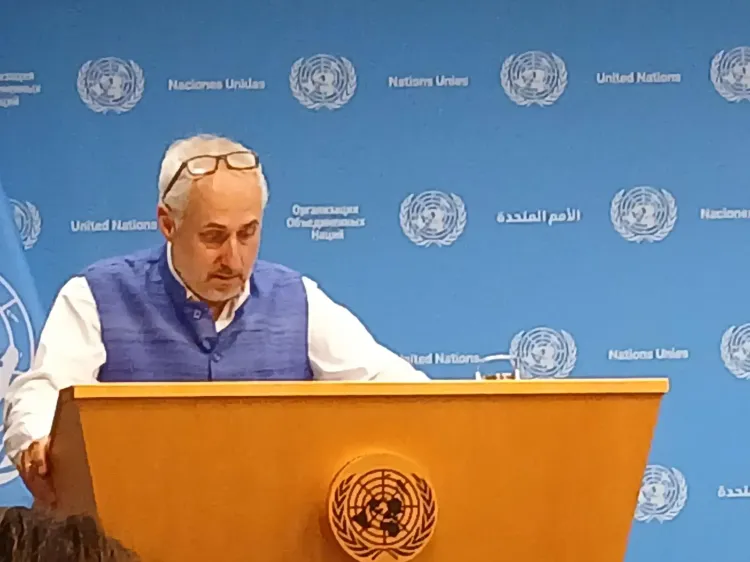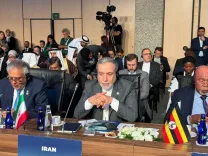Should Natural Resources Be Shared Based on Treaties? UN Spokesperson on IWT

Synopsis
Key Takeaways
- Natural resources sharing should follow treaties for mutual benefit.
- Political tensions can affect water-sharing agreements.
- The Indus Water Treaty was signed in 1960 and facilitated by the World Bank.
- Recent remarks by Indian leaders challenge the treaty's future.
- Pakistan views any withholding of water as a significant threat.
United Nations, June 24 (NationPress) Natural resources ought to be shared according to treaties, emphasized the UN spokesperson regarding the Indus Water Treaty (IWT).
A journalist inquired during the daily briefing on Monday with Secretary-General Antonio Guterres’ Spokesperson, Stephane Dujarric, about Union Home Minister Amit Shah's reported remark that the Indus Water Treaty would "never be restored".
Dujarric clarified that he had not seen Shah's quote, but stressed that it is vital for natural resources to be distributed based on agreements that both parties find acceptable.
Prime Minister Narendra Modi has paused the water-sharing provisions of the treaty as a response to Islamabad after the terrorist attack in Pahalgam last April by The Resistance Front, linked to the Pakistan-based Lashkar-e-Tayiba, which is recognized as a terrorist organization globally.
In a recent interview with The Times of India, Shah stated, "We will redirect the water that was previously flowing to Pakistan towards Rajasthan by building a canal".
He added, "Pakistan will be deprived of water that it has been receiving unjustly".
Last month, PM Modi remarked that the treaty was poorly negotiated and failed to account for demographic shifts and other changes.
This agreement to share river waters was brokered by the World Bank and signed in 1960 by then-Prime Minister Jawaharlal Nehru and Pakistan’s leader Ayub Khan.
Without delving into specifics, PM Modi commented, "India's water that used to flow outside will now serve India's needs and be utilized for our country".
Pakistan has warned that any attempt to withhold Indus River water would be regarded as "an act of war".









